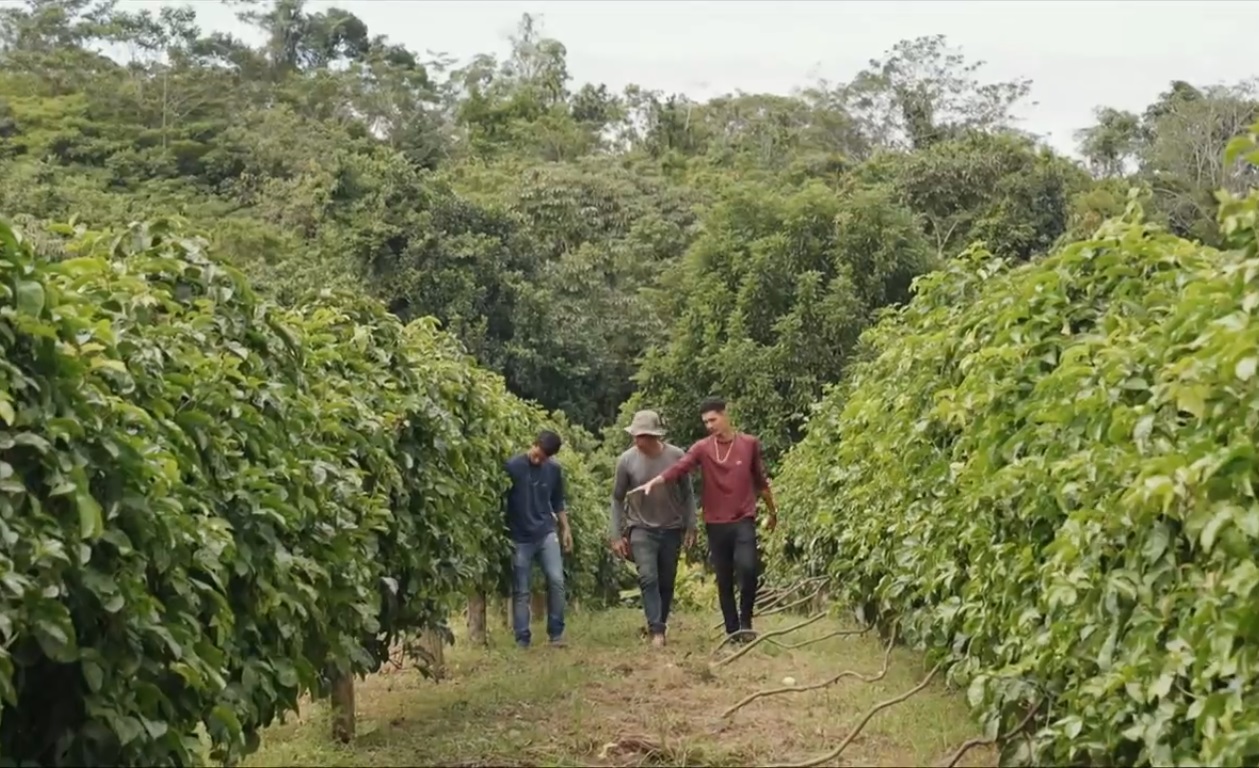Contributing to expanding access to the Our Culture collection, the Norberto Odebrecht Foundation (FNO) has just launched the digital...
Casa Familiar Rural, partner of FNO, has a prominent role in a report on Globo Rural
DATE: 07/18/2024
The work carried out by the Casa Familiar Rural de Igrapiúna (CFR-I), a partner institution of the Norberto Odebrecht Foundation (FNO) in the execution of PDCIS, its social program, was highlighted in an exclusive article aired on Globo Rural last Sunday (7), a television program on Rede Globo. Presenting technical assistance in the training of new cocoa producers and other practices that are part of the PDCIS, the report valued the school’s role in keeping young people in the countryside and productive family succession in rural areas.
Maiara Dresselin, agronomist and director of CFR-I, believes that the institution activates in young people the understanding that the countryside can be a great place to stay. “We’re showing that it’s possible to guarantee a livelihood, increase the productivity of the property, improve the quality of life, better alternatives than suffering on the outskirts of big cities,” she says.

Productive family succession in the rural area of Bahia’s Southern Lowlands was the subject of an article on a Rede Globo program
With an educational methodology geared towards the students’ rural reality, CFR-I provides theoretical and practical learning, ranging from handling and processing to marketing and property management. Among the crops they work with, cocoa has become the main interest and focus of the students’ dedication. During the three years of high school, they learn all the steps involved in making chocolate, and they also get to benefit from part of the production at school.
The report also highlights the transmission of knowledge from young people to their families and communities. Antonio Menezes, a farmer and father of third-year students Luan and Arthur, says that he has learned a lot from his children since they joined the institution. “Things in agriculture that I thought were reality, they showed me were totally different. This has only added to our success and we are progressing well,” he says. These new lessons were reflected in the family’s economic growth: with the changes, they were able to reduce crop production costs by 30%, and the average income increased from R$1,800 to R$8,000 per month.
THE PDCIS
Created in 2003 and coordinated by the Norberto Odebrecht Foundation, PDCIS promotes sustainable territorial development in socially vulnerable regions. The program is made up of a series of socio-environmental solutions with proven impacts that strengthen family farming in harmony with the environment. In this way, it seeks to boost economic development, prevent rural exodus and promote entrepreneurship and social inclusion.
Check out the article on how quality education at the Casa Familiar Rural de Igrapiúna, a partner in the implementation of the PDCIS, has influenced young people to increasingly choose to stay in the countryside, making family succession in agriculture a natural process. Watch it here!



No comments